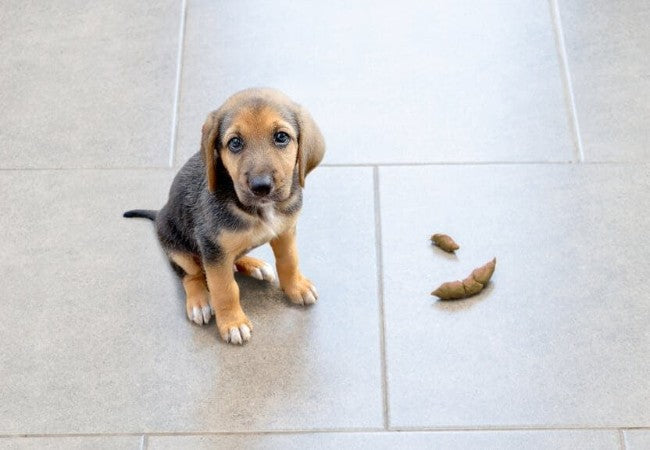Why Your Dog Is Pooping in the House: Vet-Guided Solutions for 2025 🩺🐶

In this article
Why Your Dog Is Pooping in the House: Vet-Guided Solutions for 2025 🩺🐶
By Dr. Duncan Houston BVSc
Finding poop indoors is frustrating—but dogs never do it "to spite you." It's usually a sign something's off. Let’s explore medical, emotional, and lifestyle causes, plus practical vet-backed strategies to get habits back on track. 🩺
1️⃣ Rule Out Medical Causes
- 🪱 Parasites: Worms (roundworms, giardia) lead to inflammation, urgency, diarrhea—common offenders.
- 🍽️ Food intolerance or allergies: Up to 15% of dogs experience GI upset from certain protein or grain ingredients.
- 🦠 Infections or GI disease: Bacterial/viral infections, IBD, or obstructions can disrupt bathroom habits.
- 🧓 Age-related issues: Dementia or arthritis may impair control or physical ability to eliminate outside.
✅ Vet tip: Collect stool and bring to your vet—diagnostic screening (fecal, blood, imaging) pinpoints hidden issues.
2️⃣ Emotional Factors & Stress
- 😰 Separation anxiety: Nervous dogs may soil when left alone—a pattern seen in pacing, whining, or escape attempts.
- ⚡ Noise phobia (thunder, loud traffic): Fear may prevent outdoor bathroom habits.
- 🔄 Major life changes: Moves, new pets, new babies, household upheaval can trigger stress-induced accidents.
✅ Vet tip: Manage anxiety with structured routines, safe spaces, behavior training, or medication if needed.
3️⃣ Environmental & Routine Disruptions
- ⏰ Inconsistent potty schedule: Rushed outdoor time or insufficient breaks can lead to indoor accidents.
- 🥏 Distractions during walks: Sniffing or playing outdoors might delay elimination until returning inside.
- 🔁 Sudden diet change: Swapping food without a slow transition disrupts gut flora—use gradual mixing.
✅ Vet tip: Set consistent elimination breaks and slowly introduce new diets over 7–10 days.
4️⃣ What You Can Do Now
- 📅 Keep a poop log—time, consistency, location.
- 🏡 Supervise and confine in dog-proofed areas when unsupervised.
- 👟 Take frequent outdoor potty breaks—especially after meals, naps, or play.
- 🎉 Praise and reward outdoor pooping immediately.
- 🧠 Desensitize to stressors with positive reinforcement (sound CDs, treats).
- 🛌 Create a calm retreat with familiar bedding and safe toys during storms.
- 🏥 Consult a professional trainer or vet behaviorist if needed.
📊 Quick Troubleshooting Table
| Reason | Signs | Action |
|---|---|---|
| Parasites/GI issue | Diarrhea, mucus/blood, urgency | Stool test + treatment |
| Separation anxiety | Pacing, whining, soiling when alone | Gradual desensitization, behavior help |
| Stress/fear | Failures in specific contexts | Safe den, sound therapy + routine |
| Routine change | Timing-based indoor accidents | Rebuild consistent schedule |
| Age-related | Night accidents, forgetfulness | Vet assessment + joint support |
🔍 Final Thoughts
Indoor accidents aren’t the end of the world—they’re clues. With a vet check, stress reduction, consistent habits, and gentle retraining, most dogs recover their housetraining with time and care. You’ve got this! 🐾❤️
Need personalized support or training tips? Download the Ask A Vet app for expert help anytime. 📱🐕






